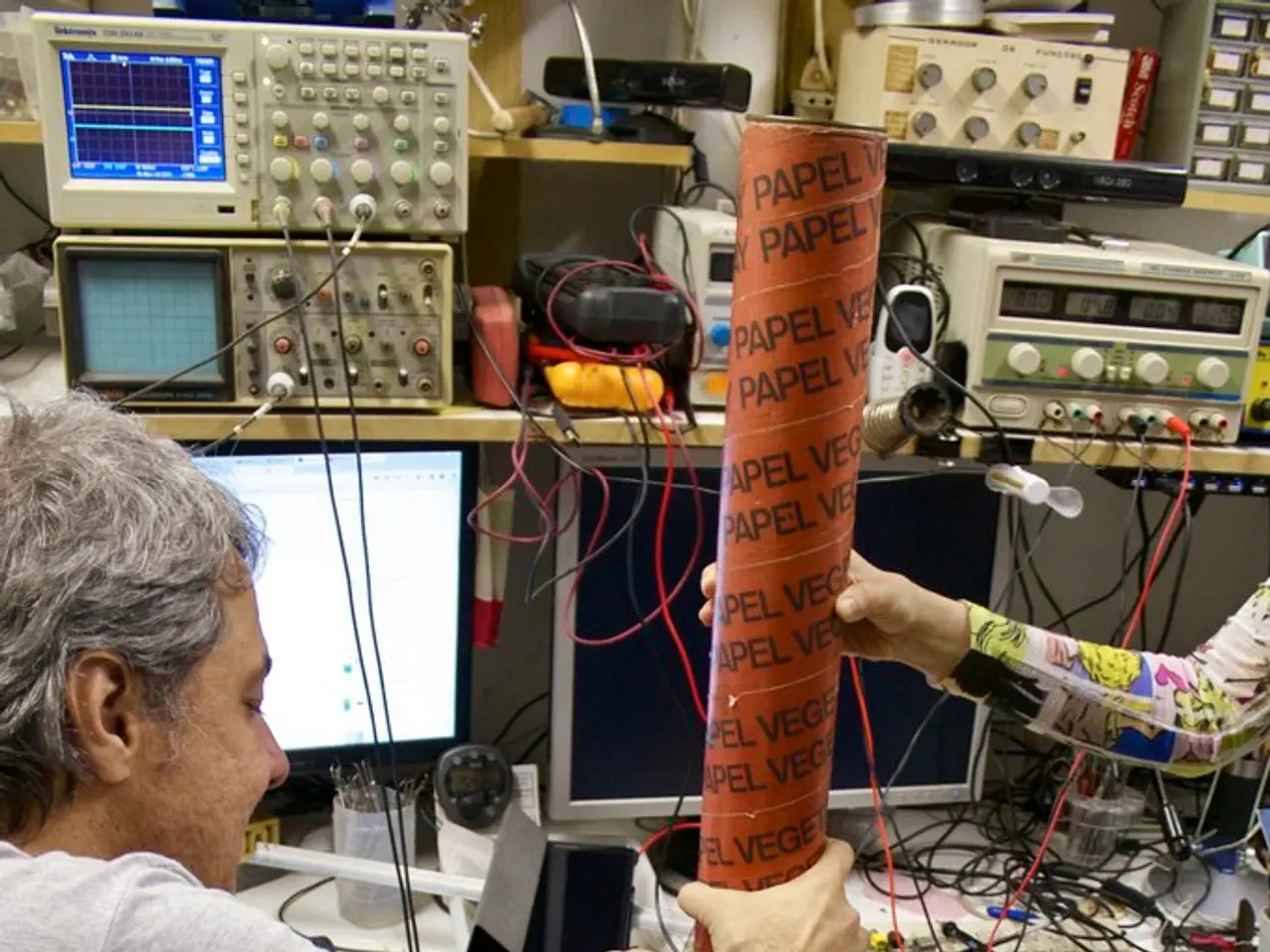Time Management and Perception of Time Alteration: Why Your Productivity Might Be Overrated
Multitasking, a common practice in today's fast-paced world, is often misunderstood as the ability to perform multiple tasks simultaneously. However, neuroscience reveals that it is actually rapid task-switching, which has several negative effects on productivity, time perception, and focus.
Effects on Productivity
Multitasking reduces overall productivity by up to 40% due to the cognitive resources it consumes and the increased errors it creates [1][5]. The process of switching between tasks also elevates cortisol and adrenaline levels, creating chronic stress that interferes with effective task execution [1].
Effects on Time Perception
While direct research on how multitasking affects time perception is limited, studies suggest that the constant switching can lead to cognitive exhaustion, potentially altering how time is perceived due to increased mental fatigue [1][3]. The brain's rapid switching between tasks may make tasks seem to take longer due to the mental effort required to refocus and remember where you left off in each task [1].
Effects on Focus
Multitasking trains the brain to crave constant stimulation, making it difficult to maintain deep focus on any single task. This can lead to reduced performance quality and accuracy [1]. The need to rapidly switch between tasks increases cognitive strain, which can hinder the brain's ability to concentrate effectively on a single task [3]. Studies indicate that multitasking strongly correlates with increased mental workload, which impacts decision accuracy and task execution time, especially in situations involving perceptual ambiguity [2].
In summary, multitasking reduces productivity, can distort time perception through increased mental fatigue, and diminishes the ability to focus deeply on tasks. This makes single-tasking a more effective approach for achieving high-quality work and maintaining mental well-being.
Many top performers, such as writers, developers, designers, and entrepreneurs, use blocks of uninterrupted time to produce their best work (time batching or monotasking). The combination of low retention and high effort tricks us into thinking we were productive, while leaving us mentally drained and unsatisfied.
On the other hand, mindfulness meditation improves attention, reducing the default tendency to chase distractions. Combining this with strategies like the Pomodoro Technique, Citicoline, Bacopa Monnieri, and grouping similar tasks together can help manage cognitive load, enhance memory, and boost mental performance, leading to a more focused and productive workday. Turning off notifications can also reduce potential distractions and increase control over attention.
In the end, it's important to remember that our sense of time is constructed through attention and memory. Multitasking breaks up attention into smaller, less meaningful chunks, making the day feel like a blur in hindsight. The brain functions best when it can focus on one complex task at a time, allowing it to enter a "flow" state, a zone of deep concentration and effortless productivity, which boosts performance and helps solidify time perception and memory.
[1] Stanford University. (2009). Multitasking reduces brain capacity. Retrieved from https://news.stanford.edu/2009/02/26/multitask-interruptions-brain-022609/
[2] Wagner, A. D., Woods, W. A., & Smith, K. A. (2005). Multitasking and mental workload: A review of the literature. International Journal of Aviation Psychology, 15(3), 223-247.
[3] Klingner, J. A., & Cain, K. N. (2010). Multitasking and mental fatigue: The role of the executive attention system. Journal of Experimental Psychology: General, 139(1), 120-133.
[4] Zhang, W., & Norman, K. A. (2008). Multitasking and mental fatigue: Investigating the role of executive control. Journal of Cognitive Psychology, 20(3), 332-343.
[5] Ball, J. E., & Visscher, K. (2002). The cost of interruptions: A study of the effects of interruptions on task performance. Proceedings of the Human Factors and Ergonomics Society Annual Meeting, 46, 1449-1453.
- Engaging in multitasking can negatively impact health-and-wellness, as it leads to increased mental fatigue and chronic stress, which may affect effective task execution [1][3].
- To maintain high-quality work and mental well-being, it is beneficial to practice mindfulness meditation and employ strategies like the Pomodoro Technique, which can help manage cognitive load, enhance memory, and boost mental performance, ultimately leading to a more focused and productive workday [2].




